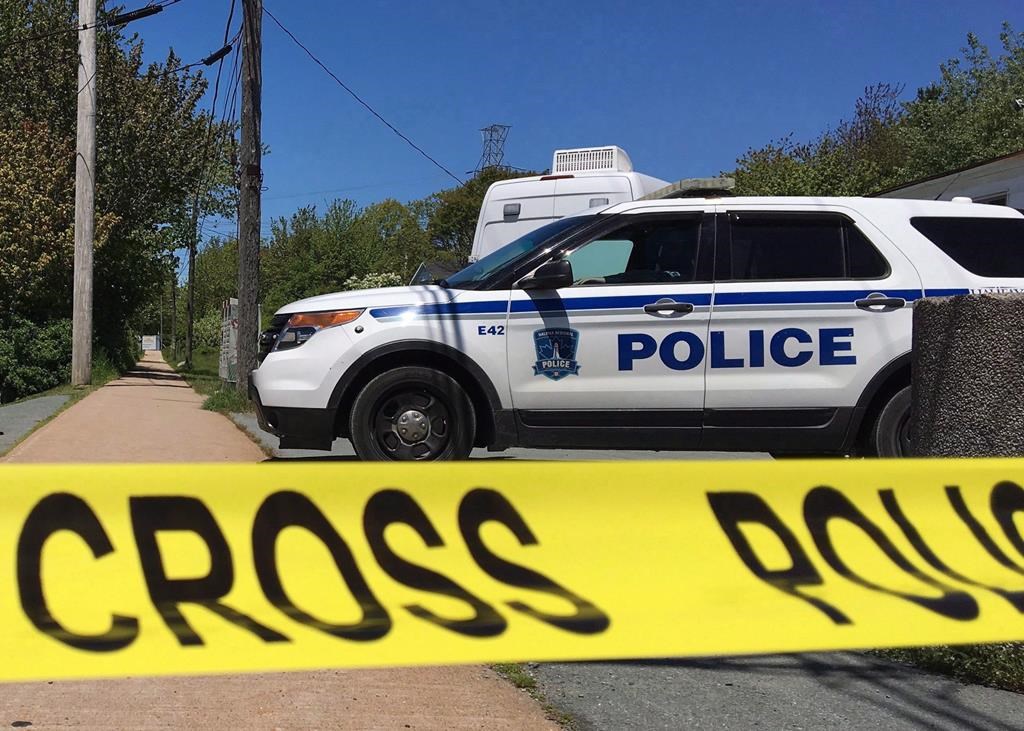Psychiatrist’s testimony limited in newspaper shooting case
Posted Apr 22, 2021 07:01:23 PM.
Last Updated Apr 22, 2021 07:09:10 PM.
ANNAPOLS, Md. — A psychiatrist at a detention centre where the man who killed five people at the Capital Gazette newspaper has been held will be limited to testifying about her personal observations and won’t be able to provide her opinion to jurors that he doesn’t suffer from autism or show signs of needing mental health treatment, a judge ruled Thursday.
Attorneys in the case of Jarrod Ramos, who has pleaded guilty but not criminally responsible due to insanity, have long been arguing over the scope of what key witnesses can testify about to jurors in the second phase of his trial, which is now scheduled for late June — three years after the attack.
Dr. Andreea Adiaconitei testified during a pretrial hearing that Ramos did not show signs of mental illness or autism when he first came to the detention centre. She noted that she spoke with him three or four times and also relied on reports from other detention centre staff, such as nurses and correctional officers. She said he appeared to be “adjusting very well,” and that he even told her he was “OK.”
“I noticed that he was reading and was very impressed by that,” she said.
But Elizabeth Palan, an attorney for Ramos, challenged whether the psychiatrist’s knowledge about Ramos met the standard for her to be considered an expert witness on Ramos’ mental health. Palan contended her encounters with Ramos were brief, and she relied on what other people told her about how he was doing.
“That’s not data,” Palan said. “That’s absence of data.”
State’s Attorney Anne Colt Leitess argued the psychiatrist shouldn’t be limited only to testifying about her observations of Ramos, because she was the supervising psychiatrist at the facility who made decisions based on her own expertise, as well as the observations of nurses and correctional officers.
But Judge Michael Wachs disagreed, saying Adiaconitei did not meet the threshold to be an expert witness on whether Ramos was mentally ill.
“She had very limited access to Mr. Ramos,” Wachs said.
Still, Wachs made the ruling with the caveat that he could change his mind during the trial, depending on what other witnesses say at the trial.
Separately, the judge ruled that opening arguments will start on June 29, a day later than scheduled, because of a memorial in Annapolis, Maryland, for June 28 — the third anniversary of the attack.
Attorneys have long been wrangling over the scope of witness testimony in the case.
Last year, a judge ruled that a psychiatrist retained by prosecutors can testify about his evaluation of Ramos, even though he never interviewed him.
Dr. Gregory Saathoff is scheduled to appear in court Friday, when defence attorneys are expected to try to limit the scope of what he can say before jurors.
Dr. Sameer Patel, a psychiatrist with the state Health Department, also was in court Thursday. He testified that he interviewed Ramos six times for about 20 hours for his mental health evaluation of Ramos. His report determined Ramos was legally sane.
Defence attorneys have retained their own mental health expert.
Ramos pleaded guilty in October 2019 to all 23 counts against him for killing John McNamara, Gerald Fischman, Wendi Winters, Rob Hiaasen and Rebecca Smith.
The 41-year-old had a well-documented history of harassing the newspaper’s journalists. He filed a lawsuit against the paper in 2012, alleging he was defamed in an article about his conviction in a criminal harassment case in 2011. The defamation suit was dismissed as groundless, and Ramos railed against staff at the newspaper in profanity-laced tweets.
If Ramos were found not criminally responsible, he would be committed to a maximum-security psychiatric hospital instead of prison.
Brian Witte, The Associated Press










